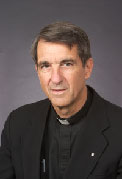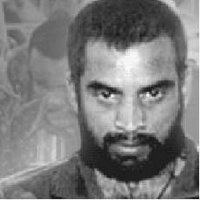First, he reminded Christendom that the foundation of our faith is love because our God himself is love. Exemplified in the Trinitarian fellowship and manifested in God’s humiliation on the cross of Golgotha, love claims our allegiance - because it was God who first loved and gave us his only Son. It also reminds us that love derived from the consequence of faith is always self-giving, costly, and necessary. Where love expresses itself in genuine heartfelt concern, the "richness of...humanity" is experienced, as much as the very presence of God is felt.
They realize that a pure and generous love is the best witness to the God in whom we believe and by whom we are driven to love. A Christian knows when it is time to speak of God and when it is better to say nothing and to let love alone speak. He knows that God is love (cf. 1 Jn 4:8) and that God's presence is felt at the very time when the only thing we do is to love. He knows—to return to the questions raised earlier—that disdain for love is disdain for God and man alike; it is an attempt to do without God. Consequently, the best defence of God and man consists precisely in love. It is the responsibility of the Church's charitable organizations to reinforce this awareness in their members, so that by their activity—as well as their words, their silence, their example—they may be credible witnesses to Christ.Secondly, I am glad that the encyclical drew a line between Church and State while explicating the roles of both. Christianity, above all, is never about building heaven on earth, as even Jesus himself declared that his kingdom was not of this world. The distinction is important for it challenges the Church to ask how indeed to be salt and light - without betraying the cause of love, and without usurping the role of the state. The Church does not impose her values upon the State, and neither do we need the State to regulate or control everything.
Related link: Pope Benedict XVI's return to essentialsThe Church cannot and must not take upon herself the political battle to bring about the most just society possible. She cannot and must not replace the State. Yet at the same time she cannot and must not remain on the sidelines in the fight for justice. She has to play her part through rational argument and she has to reawaken the spiritual energy without which justice, which always demands sacrifice, cannot prevail and prosper. A just society must be the achievement of politics, not of the Church. Yet the promotion of justice through efforts to bring about openness of mind and will to the demands of the common good is something which concerns the Church deeply.



